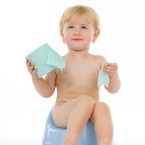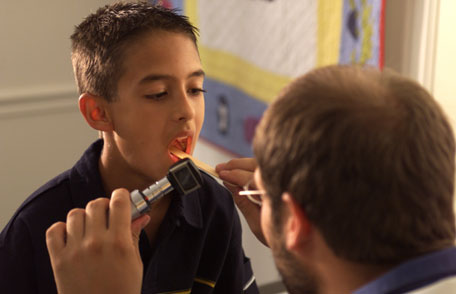
Diarrhea
What is diarrhea?
Diarrhea is defined either as watery stool or increased frequency (or both) when compared to a normal amount. It is a common problem that may last a few days and disappear on its own. Schedule an appointment if your child is very weak or if you have concerns about the diet by calling our office at (972) 695-9630
Diarrhea may be:
- Acute (short-term, usually lasting several days), which is usually related to bacterial or viral infections.
- Chronic (long-term, lasting longer than four weeks), which may have a variety of causes, such as irritable bowel syndrome, or may be due to chronic diseases such as ulcerative colitis, Crohn’s disease, or celiac disease. Giardia may also cause chronic diarrhea.
What causes diarrhea?
Diarrhea in children may be caused by a number of conditions, including the following:
- Bacterial infection
- Viral infection
- Food intolerances or allergies
- Parasites
- Reaction to medications
- A gastrointestinal (GI) disease, such as inflammatory bowel disease
- A functional bowel disorder, such as irritable bowel syndrome
- A result of surgery on the stomach or gallbladder
Many people suffer “traveler’s diarrhea” caused by a bacterial infection or a parasite, or even food poisoning.
Severe diarrhea may indicate a serious disease, and it is important to consult your child’s healthcare provider if the symptoms persist or affect daily activities. Identifying the cause of the problem may be difficult.
What is the best way to treat diarrhea?
Most children with mild diarrhea can continue to eat a normal diet including formula or milk. Breastfeeding can continue. If your baby seems bloated or gassy after drinking cow’s milk or formula, call your pediatrician to discuss a temporary change in diet. Special fluids for mild illness are not usually necessary.
Special fluids for moderate illness
Children with moderate diarrhea may need special fluids. These fluids, called electrolyte solutions, have been designed to replace water and salts lost during diarrhea. They are extremely helpful for the home management of mild to moderately severe illness. Do not try to prepare these special fluids yourself. Use only commercially available fluids—brand-name and generic brands are equally effective. Your pediatrician or pharmacist can tell you what products are available.
If your child is not vomiting, these fluids can be used in very generous amounts until the child starts making normal amounts of urine again.
Reminder–Do’s and Don’ts
Do
-
Watch for signs of dehydration which occur when a child loses too much fluid and becomes dried out. Symptoms of dehydration include a decrease in urination, no tears when baby cries, high fever, dry mouth, weight loss, extreme thirst, listlessness, and sunken eyes.
-
Keep your pediatrician informed if there is any significant change in how your child is behaving.
-
Report to your pediatrician if your child has blood in his stool.
-
Report to your pediatrician if your child develops a high fever (more than 102°F or 39°C).
-
Continue to feed your child if she is not vomiting. You may have to give your child smaller amounts of food than normal or give your child foods that do not further upset his or her stomach.
-
Use diarrhea replacement fluids that are specifically made for diarrhea if your child is thirsty.
Don’t
-
Try to make special salt and fluid combinations at home unless your pediatrician instructs you and you have the proper instruments.
-
Prevent the child from eating if she is hungry.
-
Use boiled milk or other salty broth and soups.
-
Use “anti-diarrhea” medicines unless prescribed by your pediatrician.




